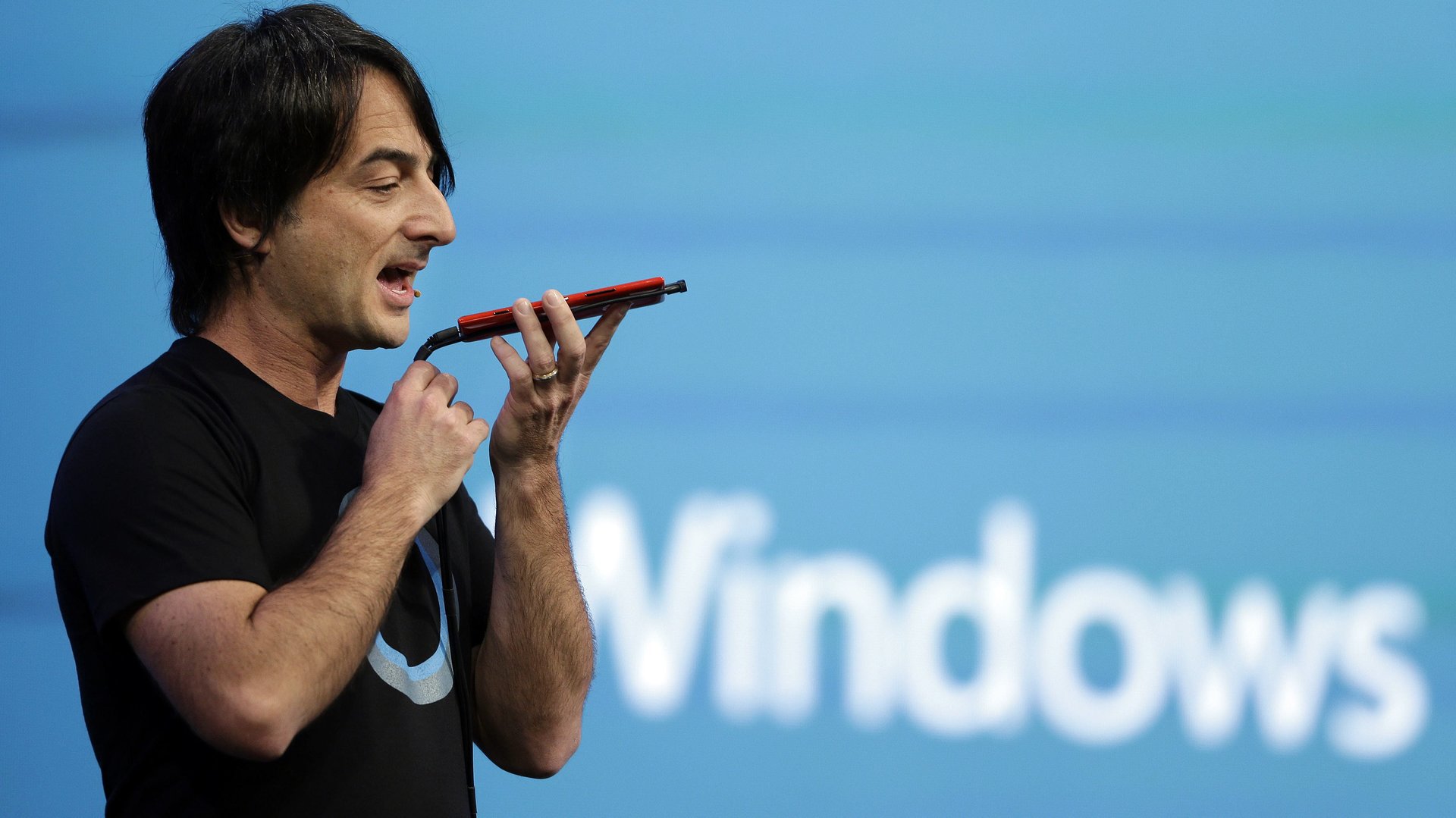Microsoft and Amazon made a zero-stakes deal to foist more virtual assistants on you
Later this year, you’ll be able to summon Microsoft’s virtual assistant, Cortana, through Amazon’s Alexa. And if you’re using a Windows computer, you’ll be able to push aside Cortana for Alexa.


Later this year, you’ll be able to summon Microsoft’s virtual assistant, Cortana, through Amazon’s Alexa. And if you’re using a Windows computer, you’ll be able to push aside Cortana for Alexa.
Amazon and Microsoft announced the collaboration today in a synchronized swan dive of press releases, shortly followed by a feature in the New York Times. The companies say that Alexa is good for shopping, Cortana is good for office tasks; why not work together? While consumers don’t use voice assistants enough to make a dent in either company’s bottom line, they play an important role in each company’s future.
Cortana
Microsoft really needs a win for Cortana, the company’s bet on the voice computing platform. The virtual assistant now lives next to the start menu of more than 500 million active copies of Windows 10 and is supported as an app on every major mobile platform. Despite that reach, Microsoft claims just 145 million monthly active users including text typed into the box next to the start menu, voice, and notifications. Microsoft doesn’t release numbers on how many people just use Cortana as a voice assistant.
Cortona isn’t necessary bad to speak with, but it’s stapled onto a visual operating system and hasn’t yet shown in can work in a voice-first environment. Alexa, with 70% market share in a nascent voice assistant category, is that legitimizing factor that Microsoft needs. Microsoft, which has no visible interest in e-commerce and doesn’t compete with Amazon for music streaming or any other service, sees no downside to offer those extra benefits.
Alexa
Alexa is a really clever way to get people to use Amazon, and its associated paid services, more. The more people who have an Amazon account, then pay for Amazon Prime to unlock Alexa, the better for Amazon. The company literally gives the software away.
The risk in this Seattle, Washington-based tie-up is really low. While Amazon CEO Jeff Bezos has suggested that commands might be one day routed to whichever virtual assistant could respond best—currently someone has to literally say “Hey Cortana, open Alexa” and vice versa—each company now gets to count that command as a daily or monthly user. Everyone wins—as long as you can keep straight who you’re talking to.